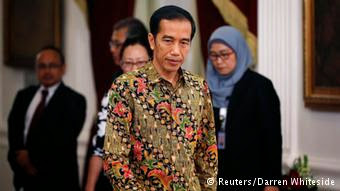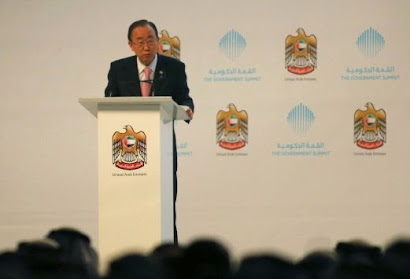Anissa S. Febrina, The Jakarta Post, Jakarta
After having an almost defunct commercial building revamped into the shiny new Hotel Formule-1, Menteng's main thoroughfare Jl. HOS Cokroaminoto will soon welcome a new park.
Although it may not seem like much at first, a lot of changes are coming to the area.
A pair of glass monuments, which will also function as a greenhouse, stand tall behind the park's current construction fence, grabbing the attention of passers by.
Despite controversy surrounding its development, Menteng Park, which is being built on the former Persija football field, will be officially opened by Governor Sutiyoso this Saturday.
The Rp 32 billion park will offer a basketball court, a futsal field and a three-story parking building besides the elusive promise of real open green space.
A local neighborhood group had earlier objected to the plan to build the multi story parking facility on Jl. Sidoarjo, on 2,000 square meters of land where the old Persija clubhouse used to sit.
They feared the parking garage would lead to an increase in the number of cars and people in the area, with the facility sitting only six meters from the nearest house.
But the parking area has already been built.
This is only the start of the major changes the Jakarta administration has promised for the busy and congested strip.
Located just a block behind the businesses surrounding the Hotel Indonesia traffic circle, the sidewalks near the park are a place for workers from the buildings to grab their lunch.
Street vendors line up their carts between 8 a.m. and 11 p.m., serving made-to-order lunches, dinners and snacks for all comers.
The area has attracted vendors and customers since the 1980s. Cars line up along the strip, occupying almost half the width of the road.
Friday and Saturday nights are especially crowded, with parked cars forcing passing vehicles to line up bumper to bumper.
"Menteng's on-street parking will be relocated to the new parking building in time for the park's opening," Central Jakarta Mayor Muhayat said.
That will surely make the strip more orderly and ease congestion during peak hours.
And there is one more thing the administration wants to change.
An earlier decision would have allowed street side vendors to operate after office hours, with the area itself developed into one of the city's leading food destinations.
But during a Monday discussion with the vendors the municipality changed its mind and said that it would relocate the vendors to a hidden alley behind shopping center Keris Gallery.
"We hope the new regulations will create better conditions," Muhayat said.
The sidewalk would also be revamped in a bid to polish up the area as a rising modern commercial strip.
And food vendors carts and plastic stools do not fall into the category of modern.
"We've been told that we should move to that narrow alley behind us. I don't think all the vendors would fit in there, especially at night. There are more than a hundred of us," said Wati Setiyo, a vendor who has been in the area for 13 years.
The municipality has also proposed a plan B: moving only the carts into the narrow alley and reserving part of the sidewalk for outdoor eateries.
But this contingency plan is also not without its flaws.
If you understand the nature of street side food vending, you would know that their mobile open kitchens, which enable them to serve their customers quickly, are key to their survival.
That is apart from low prices, of course.
Neither of the plans have been carried out and vendors, as well as their customers, will have to let the municipality experiment on them first.
Architect and urban planning lecturer Danang Priatmodjo said the Jakarta administration as well as the municipality had only just realized the "potential" of the vendors along the strip.
Currently, day-time vendors pay Rp 2,000 per day to city cleaning officers and Rp 500,000 per month to local thugs or preman, Wati said.
"Those selling at night pay up to Rp 1,000,000 a month (in extortion money)," she added.
On the average figure of 100 vendors during each day and 200 vendors at night, local thugs would end up receiving around Rp 250 million a month. None of that enters the city's pocket.
That is a potential source of money for the city, which of course is complemented by fees from the new parking station.
Along with the opening of the park and the relocation of vendors, the administration also plans to hire private companies to manage the area.
It seems that revamping Jl. HOS Cokroaminoto is both an effort to clean up the area and turn black money into revenue for city coffers.






1 comment:
Jakarta need more public sport area
And futsal is one booming sport that most Jakarta Youth played these days
Me my self play futsal, even I am no longer a young person, hahaha...
See our club in http://makarafutsal.com
perhaps you have ideas on futsal and want to share it to every one in this beloved city?
Post a Comment